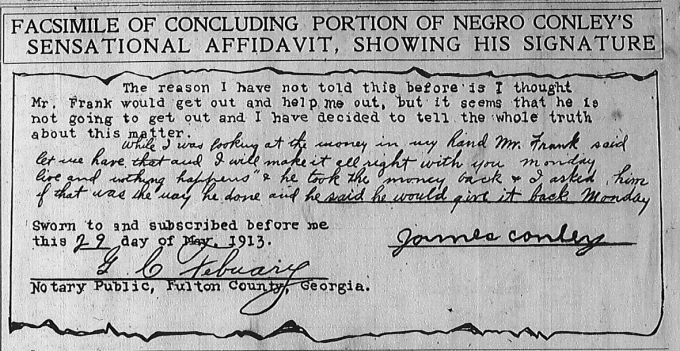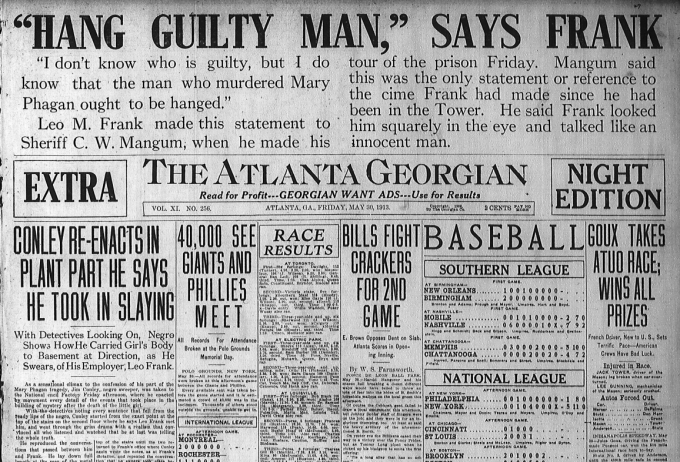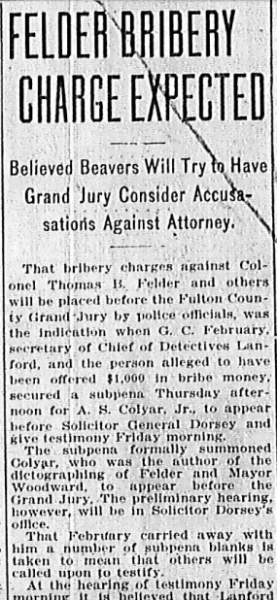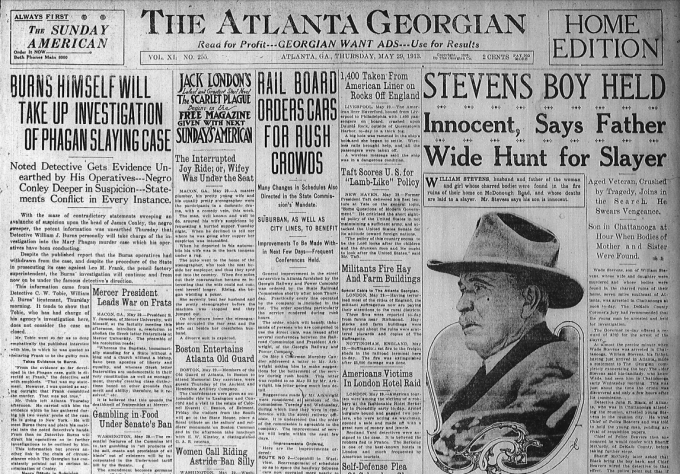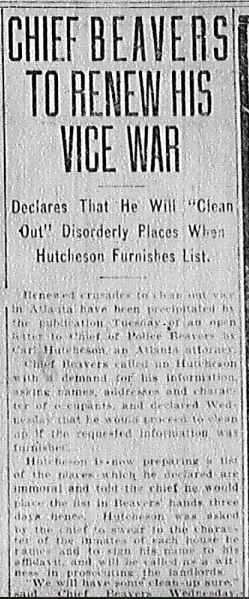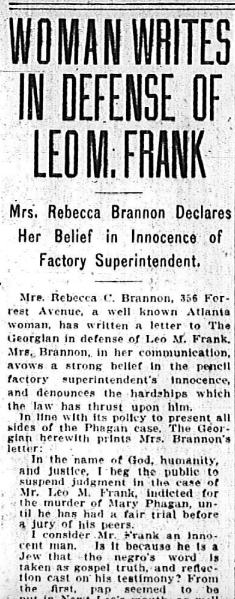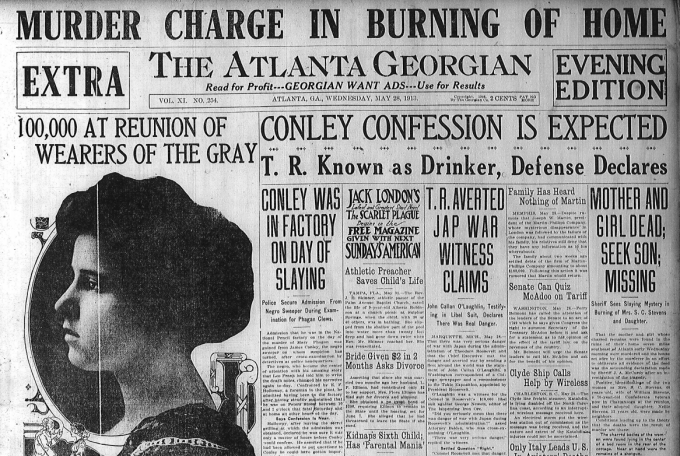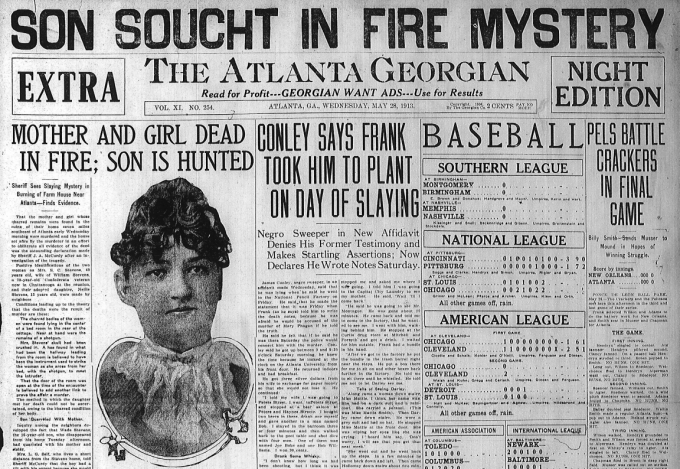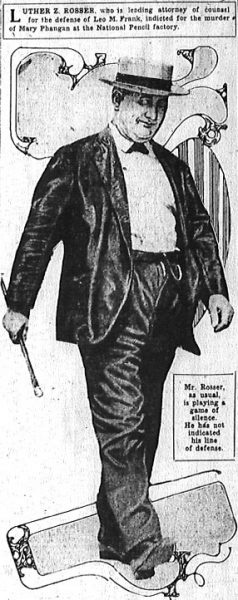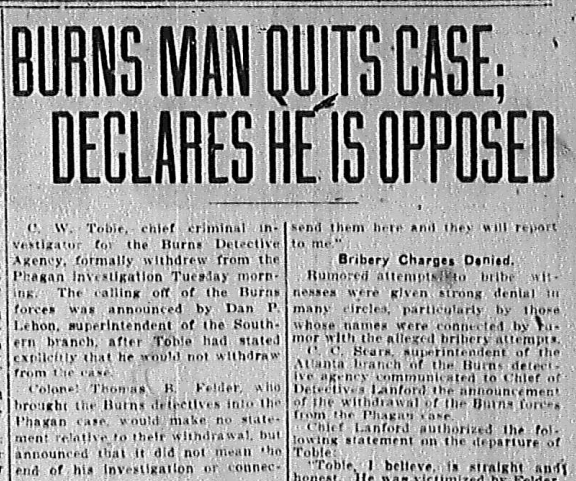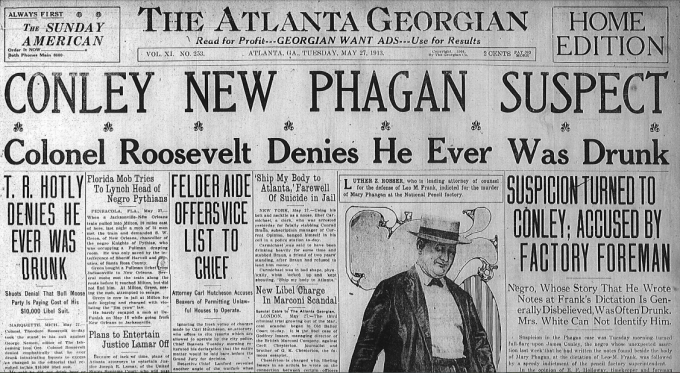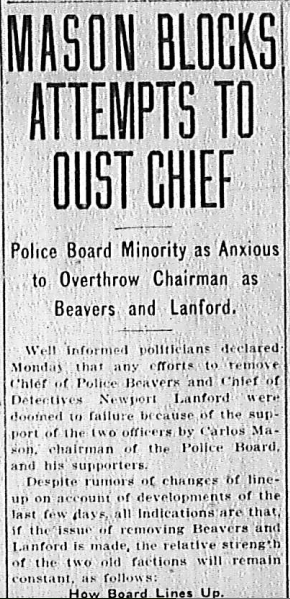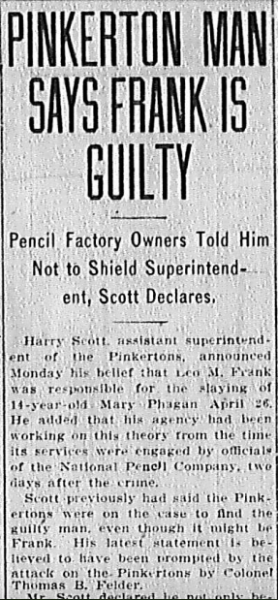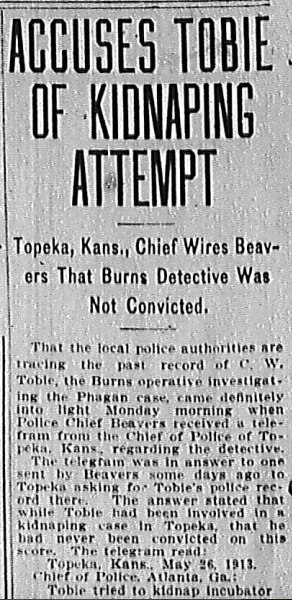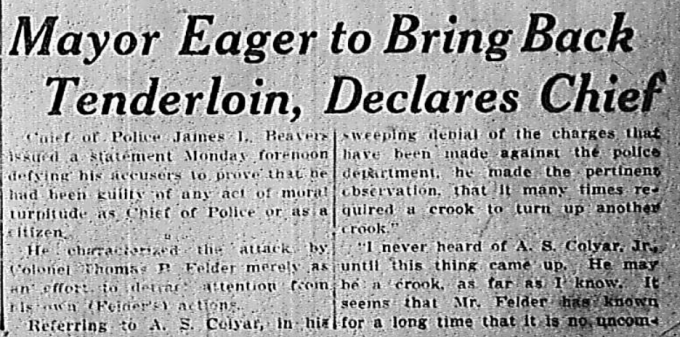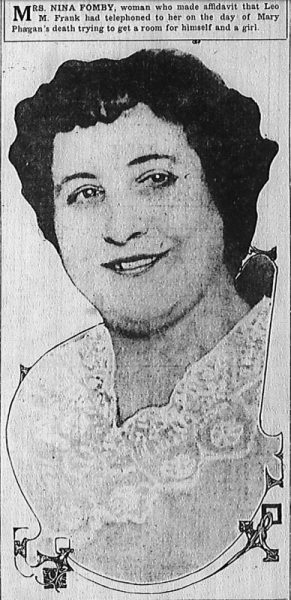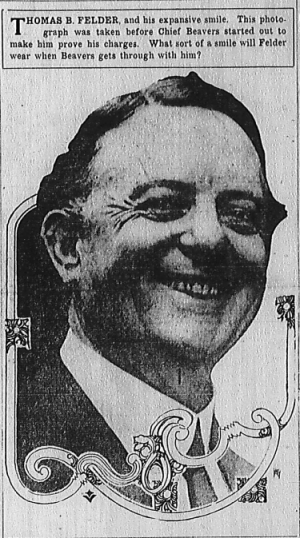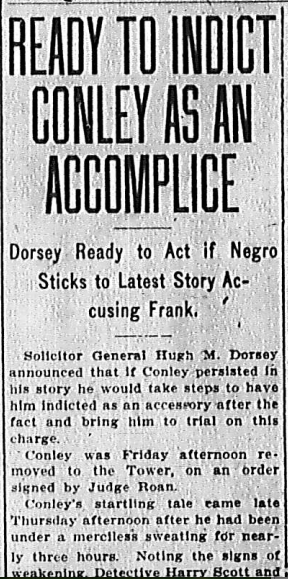 Another in our series of new transcriptions of contemporary articles on the Leo Frank case.
Another in our series of new transcriptions of contemporary articles on the Leo Frank case.
Atlanta Georgian
Thursday, May 29th, 1913
Dorsey Ready to Act if Negro Sticks to Latest Story Accusing Frank.
Solicitor General Hugh M. Dorsey announced that if Conley persisted in his story he would take steps to have him indicted as an accessory after the fact and bring him to trial on this charge.
Conley was Friday afternoon removed to the Tower, on an order signed by Judge Roan.
Conley’s startling tale came late Thursday afternoon after he had been under a merciless sweating for nearly three hours. Noting the signs of weakening, Detective Harry Scott and Chief Lanford shot question after question at him in rapid succession.
Conley hesitated and then told the men who surrounded him that he had seen Mary Phagan on the day of the crime, but that she was dead when he saw her. When it became evident that he most important disclosures of the long investigation were to be made, G. C. February, secretary to Chief Lanford, was called in and took the negro’s statement.
Sticks to Note Story.
Conley stuck to his story that Frank had him write the notes that were found by the girl’s body and the detectives believe that there can be no doubt of this now.
He said that after the notes were written Frank took his arm and led him to the body. Frank’s hand was shaking, the negro declared. Together, they raised the limp form from the floor, Conley told the detectives, and took it into the basement.
Offering no explanation of the tragedy which had occurred, Frank ordered Conley to leave the building, according to the statement. Conley explained his long silence by saying that he thought Frank had plenty of money and that he would be able to get both of them free within a short time.
Chief Lanford and Detective Scott both declared after the third degree that they were confident that the negro at last was telling the truth. If he has any further knowledge of the crime, they said they would get it out of Friday when they put him through another grilling. Continue Reading →

